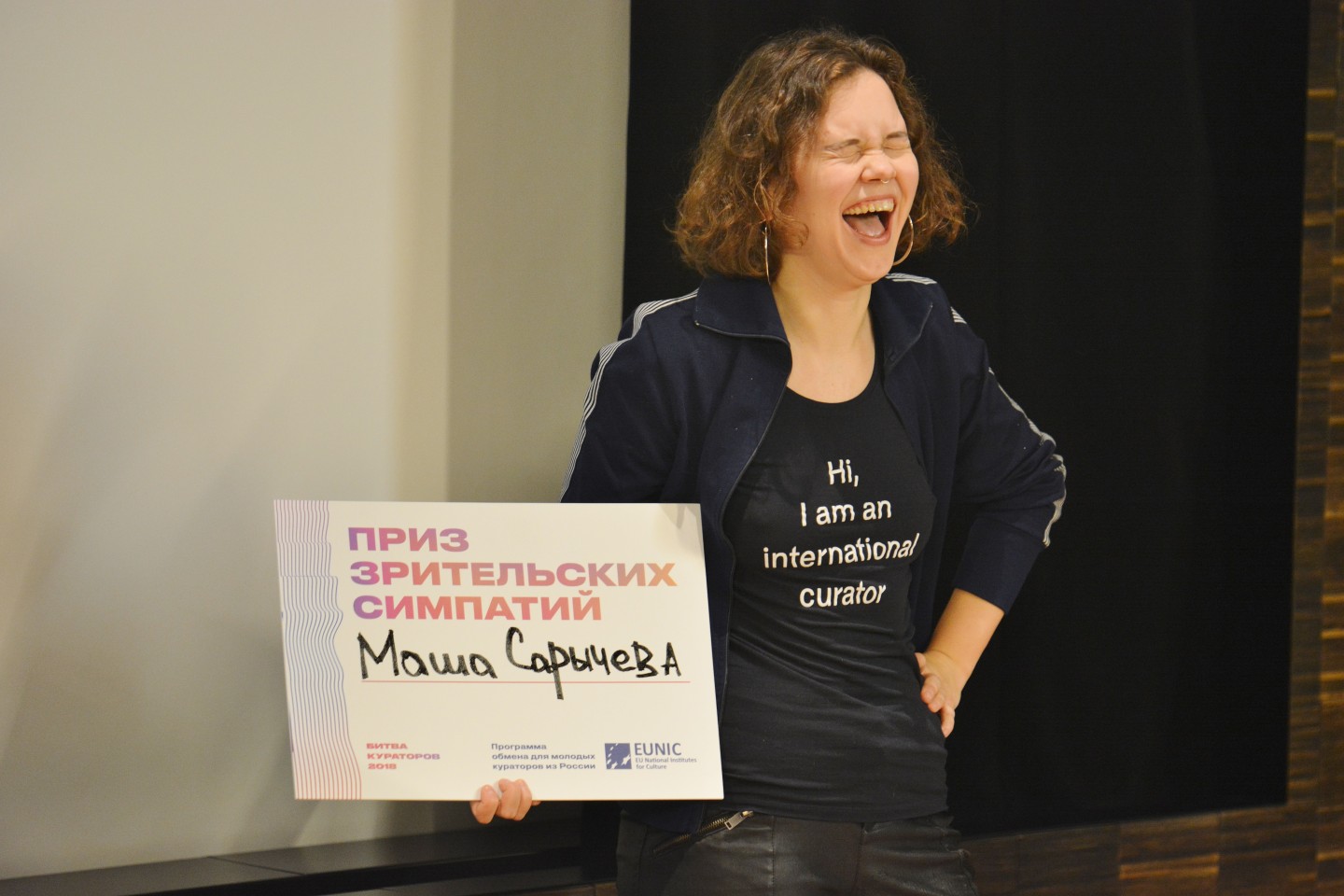Jareh Das wrote an account of the Russia Cultural Exchange programme. The project builds working relationships between art communities in Russia and Europe and contributes to building careers.
Curatorial cultural exchanges across different countries provide a meaningful way for curators to think outside the box and gain expertise from a context that differs from their places of origin. Since 2012 EUNIC has facilitated an annual exchange programme for young Russian curators with participation by, amongst others, the Austrian Cultural Forum, the embassies of Finland, Lithuania, the Netherlands and Sweden, and Institut français. A group of young curators from Russia get the opportunity to spend a month at a visual arts institution in other countries.
Each EUNIC member finds a host institution in Europe. The curators then apply through an open call and after a rigorous selection process they are matched with host institutions according to their expertise and the institutions’ needs. At the end of the programme, everyone convenes in Moscow for the Battle of the Curators. This brings the curatorial cohort, arts professionals and the public together for debate and conversation; and the opportunity for the curators to pitch their curatorial project and win a EUNIC funded scholarship of 4,000 euros. The winner is selected by a jury of experienced. Russian curators.
I spoke to three curators who were based at Le Château d’Oiron in France; Drents Museums in the Netherlands; and Rupert in Lithuania to find out how their residencies went.
Last year’s Battle of the Curators winner, Sergey Balandin, worked at Le Château d’Oiron, a Renaissance castle and the custodian of a modern art collection. He talked about the ways he is now implementing her winning project. For him this victory was an important endorsement of her curatorial work. It also contributed to the expansion of networks for curators like himself working in regional cities, in his case, Samara in southwestern Russia.
The programme builds working relationships between art communities in Russia and Europe and contributes to building careers that will be influential both artistically and economically in the global society.
Barbara Busova, a trained archaeologist, was placed at the Drents Museum where she was able to advise as an expert in the field of early Iron Age leather, support planning for future exhibitions, and influence discussions around possible future collaborations between the Netherlands and Russia. Irina Aksenova is co-founder and curator at FFTN, an independent art space in St Petersburg. She valued the fact that her residency was at the artist-run space Rupert rather than a large-scale museum. Her experience was influenced by the similarities between Lithuanian and Russian cultures, and the potential for developing small-scale and non-hierarchical institutions in Russia using Rupert as a model.
The exchange between the curators and the host institutions is evidently an endorsement of the value of cultural professionals operating beyond the boundaries of national representation to create new translations, connections, and the opening up of intellectual borders. The programme fosters deeper understanding across cultures, builds working relationships between Russia and art communities in Europe and contributes to building careers back home that will be influential both artistically and economically in the global society.
These exchanges are not only integral to early career development, they are also translating ideas, ideologies and forms of knowledge in new contexts.

